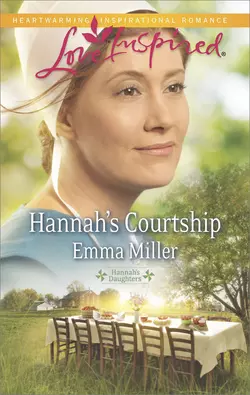Hannah′s Courtship

Emma Miller
Тип: электронная книга
Жанр: Современные любовные романы
Язык: на английском языке
Стоимость: 463.26 ₽
Издательство: HarperCollins
Дата публикации: 16.04.2024
Отзывы: Пока нет Добавить отзыв
О книге: Second Chance At LoveAmish widow Hannah Yoder never intended to marry again. Yet when her friendship with veterinarian Albert Hartman begins to bloom into something more, Hannah wonders if perhaps she′s finally ready for a new love. Albert waited his whole life to find the right woman, only to realize Hannah was there all along. But there′s more than their friendship to consider. Albert is a Mennonite, born-and-bred, and Hannah cannot–will not–leave her Amish faith, not even for him. Does Albert have the courage to give up his modern life for Hannah…and will Hannah have the courage to let him?Hannah′s Daughters: Seeking love, family and faith in Amish country